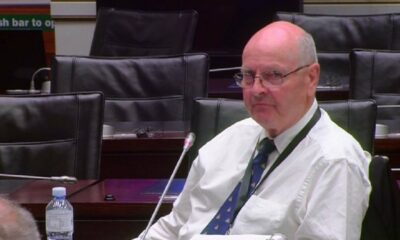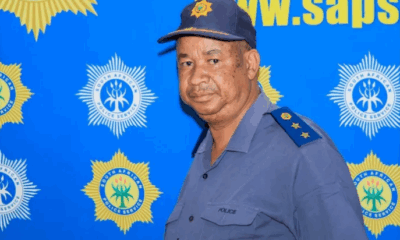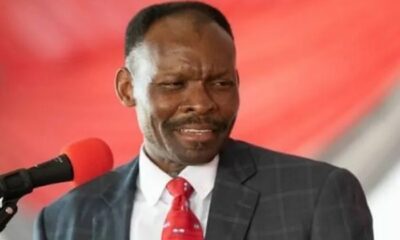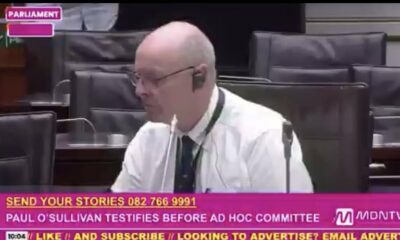News
How Politics Crippled South Africa’s Crime-Fighting Forces

Leadership in chaos, public trust in tatters, how political meddling hollowed out the SAPS and NPA
A system in slow collapse
For most South Africans, the rising tide of crime feels deeply personal. Whether it’s hijackings, house robberies or state capture scandals, one thing is clear, the very institutions meant to protect us, the South African Police Service (SAPS) and the National Prosecuting Authority (NPA), are crumbling under the weight of political interference.
A new report by the FW de Klerk Foundation has sparked fresh debate about the state of South Africa’s criminal justice system, warning that years of politicised leadership and unqualified appointments have created a leadership vacuum that is dragging the system toward collapse.
When politics trumps merit
The report doesn’t hold back: it points to a cycle of senior appointments made on political loyalty rather than competence. Since 1999, SAPS has seen six national commissioners come and go, most leaving office under clouds of scandal, underperformance, or political pressure. The NPA has faced similar churn, with multiple National Directors of Public Prosecutions (NDPPs) either forced out, fired, or legally disqualified.
Christo van der Rheede from the foundation argues that merit, not allegiance, should be the core principle in selecting these leaders. “We must appoint people with integrity, experience, and independence, not political connections,” he said. The call is echoed by Parliament’s police portfolio chair, Ian Cameron, who believes the rot comes from the top.
“This culture of impunity has enabled senior officials to fail with no real consequences,” said Cameron. “It’s a symptom of a state that doesn’t take integrity seriously.”
A parade of failed leaders
From Bulelani Ngcuka’s surprise resignation amid the Zuma corruption probe, to Shaun Abrahams’ unconstitutional appointment under Jacob Zuma, the NPA’s history reads like a political thriller. Vusi Pikoli was removed for investigating then police commissioner Jackie Selebi. Mxolisi Nxasana walked away with a R17 million golden handshake, later declared unlawful by the courts.
The SAPS hasn’t fared much better. While George Fivaz, the first post-apartheid national commissioner, completed his term with little controversy, many of his successors did not. Whether it was criminal investigations, political feuds, or allegations of corruption, most never made it to the end of their term.
Even current NPA boss Shamila Batohi has admitted that parts of her organisation are compromised, telling the public that some prosecutors are working hand-in-hand with criminals to deliberately collapse cases.
What the experts are saying
Criminologist Witness Maluleke warns that the repeated failure of SAPS commissioners to finish their terms has created a deep leadership crisis. “You can’t run a police service on instability and power struggles,” he said. Rising crime has become both a cause and symptom of the breakdown in public confidence.
Political analyst Ntsikelelo Breakfast believes lifestyle audits, promised by President Cyril Ramaphosa would be a key tool in cleaning house. “He campaigned on this promise. Now, there’s silence,” he said.
Social media and public reaction
Public reaction on platforms like X (formerly Twitter) has been scathing. Many users have shared disbelief over how long political patronage has been allowed to rot the justice system from within. One post read: “How are we supposed to believe in justice when even the NPA is infiltrated?” Another user commented: “We’re not just dealing with crime in the streets, we’re dealing with crime in the boardroom.”
Even civil society groups have begun demanding lifestyle audits, independent vetting panels, and legislative reform to fix the system. There’s growing consensus that things can’t go on as they are.
A road to redemption?
Parliament has called for an independent panel to vet candidates for top roles in SAPS, NPA, IPID and the Hawks. Regular lifestyle audits, skills evaluations and accountability reports are part of the proposed solution.
The Democratic Alliance’s Glynnis Breytenbach, a former prosecutor herself, says the country needs to rebuild the system from scratch. “There are no shortcuts,” she said. “Rebuilding will require money, political will and a commitment to rule of law that no administration has yet shown.”
Until then, South Africans remain caught in a justice system where leadership is a revolving door, and where political interference still casts a long shadow over the very institutions meant to protect us.
The crisis in South Africa’s police and prosecutorial services is not just about crime, it’s about politics. Decades of poor appointments, influenced by power rather than principle, have left these institutions fragile and failing. But with rising public frustration and fresh recommendations on the table, the moment for meaningful reform might finally be here.
{Source: The Citizen}
Follow Joburg ETC on Facebook, Twitter , TikTok and Instagram
For more News in Johannesburg, visit joburgetc.com



























